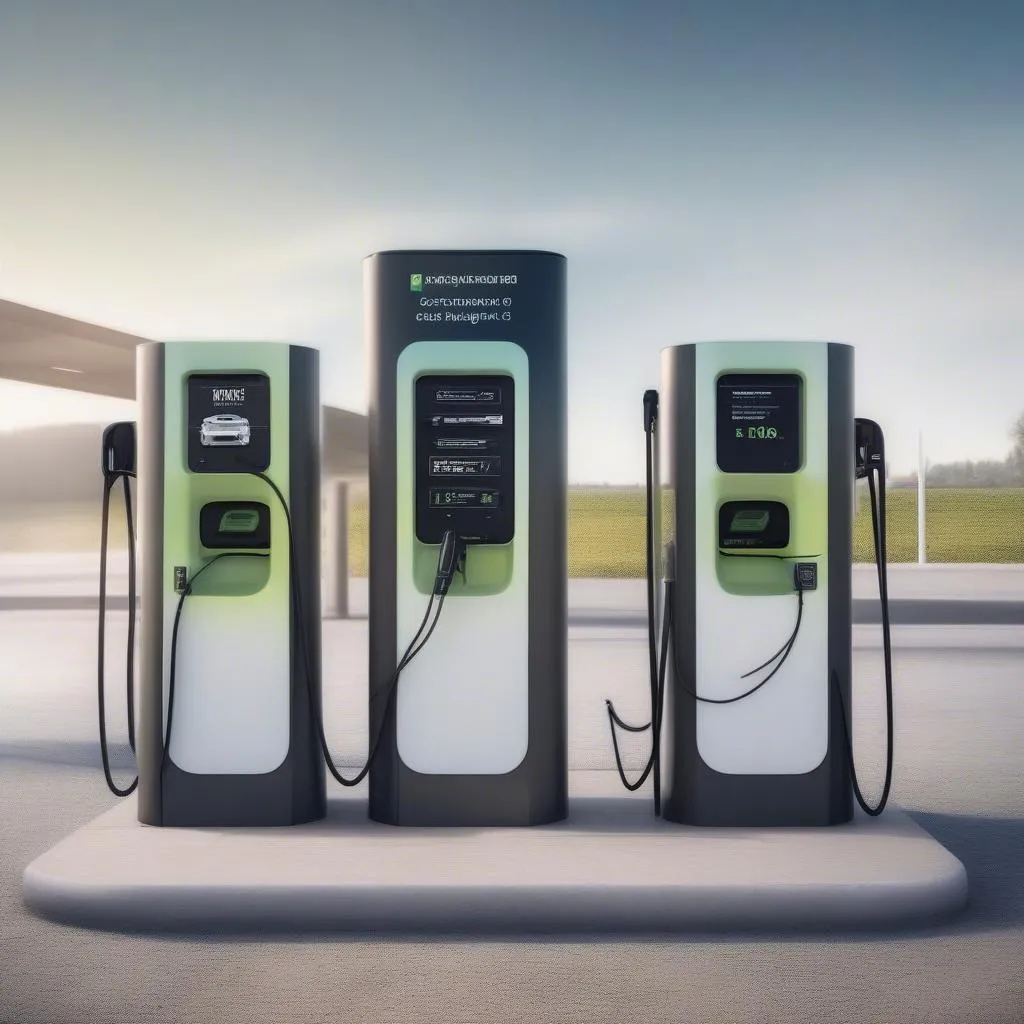Let’s face it, we’re all excited about the future of cars. Electric vehicles are the new hot topic, and for good reason! They’re eco-friendly, powerful, and technologically advanced. But, what exactly goes on under the hood of an electric car? What makes it tick? Today, we’re diving deep into the world of electricity in new cars.
What Is Electricity In New Cars?
When we talk about “electricity in new cars,” we’re really talking about the battery-powered systems that make these vehicles run. Unlike their gasoline-powered counterparts, electric cars don’t have a combustion engine. Instead, they rely on a large battery pack that stores electrical energy. This energy is then used to power an electric motor, which turns the wheels.
How Does It Work?
Imagine a giant rechargeable battery, the size of a suitcase, nestled in your car’s chassis. This battery is the heart of the electric car. It stores electrical energy, much like your phone’s battery, but on a much larger scale.
When you press the accelerator, the battery sends electricity to the motor, making it spin. This rotation is then transmitted to the wheels, propelling your car forward.
What Are the Benefits of Electricity in New Cars?
Reduced emissions: Electric cars produce zero tailpipe emissions, making them a much greener option for the environment. This is a significant advantage as we move toward a more sustainable future.
Lower running costs: Electricity is generally cheaper than gasoline, especially when factoring in the lack of engine oil changes and other maintenance requirements.
Instant torque: Electric motors deliver maximum torque from the moment you press the accelerator. This translates to lightning-fast acceleration, leaving traditional gasoline engines in the dust.
Reduced noise: Electric cars are incredibly quiet, offering a more peaceful and comfortable driving experience.
What Are the Challenges?
While electric cars offer numerous benefits, there are also some challenges to overcome:
Battery range: The range of an electric car is still limited compared to a gas-powered vehicle. However, battery technology is rapidly improving, and we’re seeing longer ranges with each new model.
Charging infrastructure: Finding charging stations for electric cars can be difficult in certain areas. As more and more electric cars hit the road, we expect to see a significant expansion of the charging infrastructure.
Cost: Electric cars are still generally more expensive than their gasoline counterparts, although costs are decreasing as production scales up.
Common Questions About Electricity in New Cars
How long does it take to charge an electric car?
Charging times vary depending on the type of charger you’re using. Public fast-charging stations can charge your battery to 80% in under 30 minutes. At home, a Level 2 charger can typically charge your battery in a few hours.
What is the range of an electric car?
The range of an electric car varies greatly depending on factors like battery size, driving conditions, and temperature. However, many newer electric car models offer ranges of over 200 miles on a single charge.
Can I use a standard outlet to charge my electric car?
Yes, but it will take a very long time. Standard outlets provide only a slow charging rate, often taking 12-24 hours for a full charge. It’s best to use a dedicated Level 1 or Level 2 charger for faster and more efficient charging.
Electricity in New Cars: The Future is Here
The automotive industry is undergoing a major transformation, with electric vehicles taking center stage. We are witnessing an era of innovation and progress, where cleaner, more efficient, and technologically advanced vehicles are becoming the norm.
What Can I Do?
If you’re considering making the switch to an electric car, there are a few things you can do:
-
Research different models: There are many great electric car options available, so take the time to research and find the model that best fits your needs and budget.
-
Check your local charging infrastructure: Make sure there are charging stations available in your area before you purchase an electric car.
-
Consider incentives: Many governments and municipalities offer financial incentives to encourage the adoption of electric vehicles.
 Electric car charging station
Electric car charging station
Get Expert Help
If you have any questions about electric cars, or need assistance with diagnostic tools, we’re here to help! Contact us at Whatsapp: +84767531508 for 24/7 expert support. We’re passionate about the future of automotive technology and dedicated to helping you make the most informed decisions.


